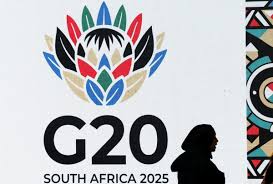
South Africa’s ambitious agenda to address global climate finance collapsed Thursday as the Group of 20 finance ministers and central bankers concluded their two-day Cape Town summit without reaching consensus on a joint communiqué.
Host Finance Minister Enoch Godongwana expressed disappointment over the impasse, which forced the issuance of only a “chair’s summary” instead of a unified position statement. “I’m not happy,” Godongwana told Reuters, pointing to climate issues as the primary sticking point without naming specific obstructionist nations.
The summary highlighted participants’ commitment to “resisting protectionism” and supporting a “rules-based, non-discriminatory, fair, open, inclusive, equitable, sustainable and transparent multilateral trading system” – language that previous Trump administration representatives had forcefully rejected.
The summit’s effectiveness was further undermined by the absence of top finance officials from several influential economies, including the United States, China, India, and Japan, amid rising geopolitical tensions and foreign aid reductions by major economies.
South Africa had positioned the meeting as a platform to pressure wealthy nations to increase climate financing for developing countries and reform global financial systems that disadvantage sovereign debtors in the Global South.
Despite disagreements on climate priorities, Godongwana noted “general agreement against protectionism and economic fragmentation” among delegates representing economies that collectively account for 85% of global GDP and 75% of international trade.
Bank of Japan Governor Kazuo Ueda observed that geopolitical tensions and supply chain disruptions remained primary concerns for achieving the G20’s goal of sustainable, balanced global growth – highlighting the group’s continued focus on traditional economic issues despite mounting climate challenges.
